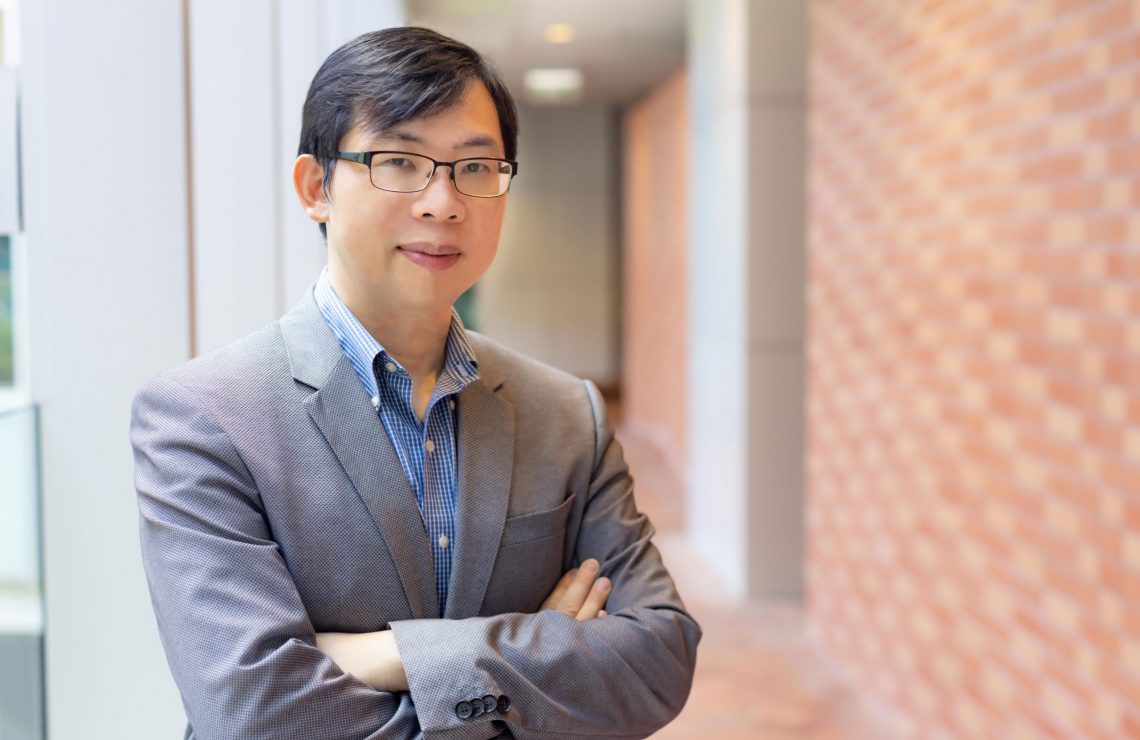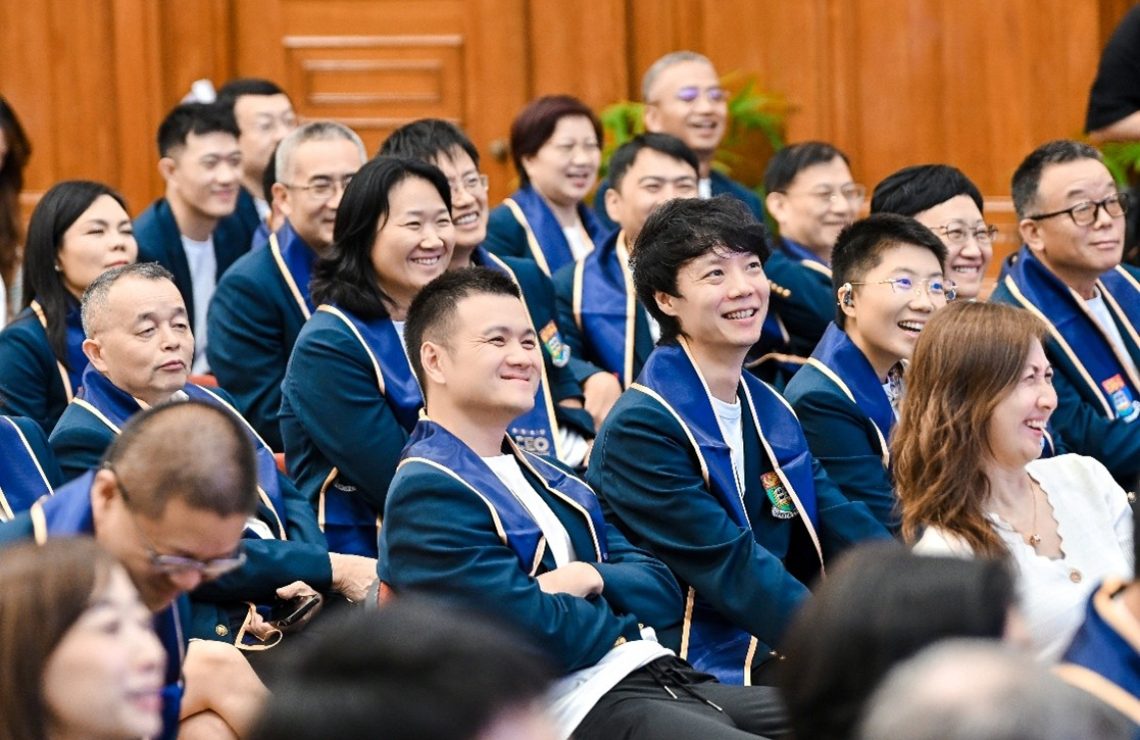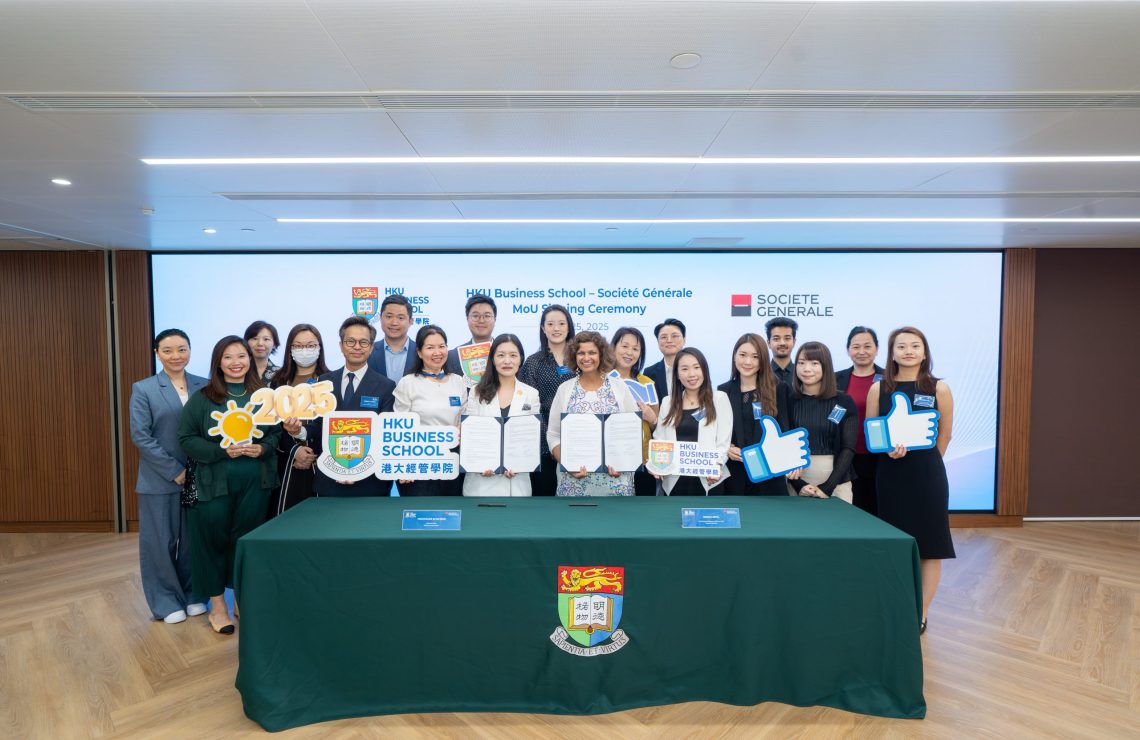
Speaking to Prominent Social Problems in the Changing World – Dr. Yanhui WU
Born and raised in Guangdong, Dr. Yanhui Wu always has a special attachment to Hong Kong. Joining us in January 2020 as an Associate Professor in Economics and Management and Strategy, Dr. Wu sees it as a great opportunity to contribute his academic intellect for our betterment and progression.
Starting off as a financial journalist, Dr. Wu developed a strong interest in uncovering social issues in China. “But a journalist could only do so much, so I restarted my academic career in search of knowledge and ways to untie persisting dead nots,” said Dr. Wu. At graduate school, he explored various research topics he considered socially important, ranging from the political role of the mass media, to the provision of incentives within firms, and how information technology and globalisation affect returns to talent and income inequalities.
Dr. Wu believes that innovation derived from creative destruction is a key driver of economic prosperity. He explains, “To understand the process of creative destruction, a central question is how market competition affects this process and the resulting economic outcomes. Although economists have a clear answer to this question in the context of the traditional manufacturing-based economy, we only have a vague idea about how competition works in the modern digital economy.”
To push this research line forward, Dr. Wu focuses his recent work on the so-called gig economy, in which individuals work as independent contractors, freelancers, and on-call workers. Observing the rise of the gig economy due to the emergence of digital platforms, he embarks on investigating how product competition affects gig workers’ behaviour and product innovation in platform markets.
Although addressing big questions, Dr. Wu mostly uses microeconomic methodology with granular data. In one of his latest papers, he assembles detailed data on the writing activities of Chinese online novelists to study innovation in platform markets. He finds that market competition motivates writers who receive royalty incomes to write more creatively, but the effect is insignificant to writers who are paid by the word and are rewarded as a salaried worker. This finding shows that reward systems are an important mediator for market competition to affect gig workers’ creative production. A more striking finding is that platform companies develop a bias of disproportionately promoting the novels authored by paid-by-the-word writers who hand over the profit accrued to book sales to platforms. Competition exacerbates this platform bias and thus hurts innovation. “Given that the gig economy is an important marketplace for grassroots innovation, this research has implications for regulatory policies on market competition,” said Dr. Wu.
In several ongoing projects, Dr. Wu aims to study how the emergence of the gig economy affects employment, education, and social mobility in China. He plans to combine big data and experimental methods to explore this exciting and challenging topic.
Dr. Wu is enthusiastic about studying economic problems in a changing world, and Hong Kong naturally catches his intellectual interest. “No doubt that many economic theories and empirical research on other cities are relevant to Hong Kong. But Hong Kong is unique and demands new solutions to its problems,” explains Dr. Wu.
Dr. Wu is very keen to take the first step to paint a clear big picture of the Hong Kong economy from micro data. He said, “Careful analysis of firms, households, and individuals is essential for understanding the dynamics of the Hong Kong economy and offering useful solutions.”







